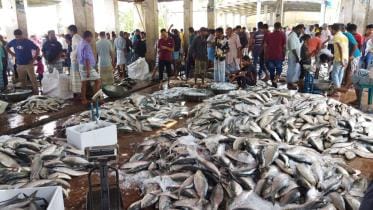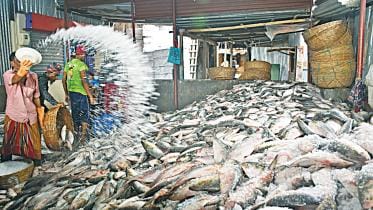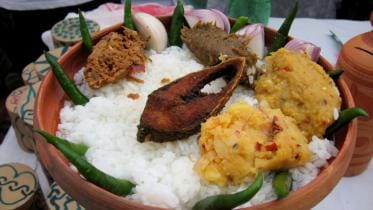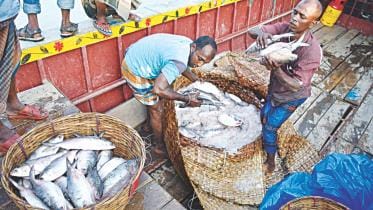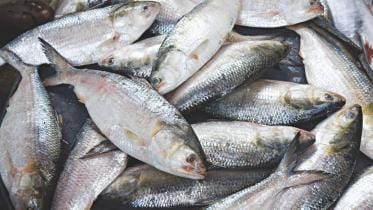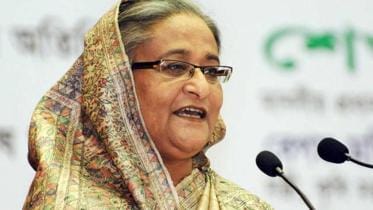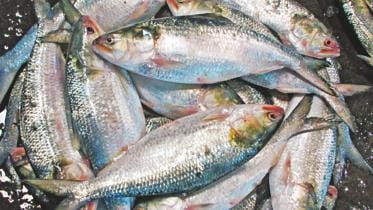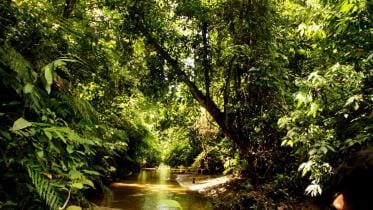Hilsha fish
Hilsa brings back smiles to fishers
“Only God knows how we survived. First, it was the cyclone, and then came the fishing ban, and then another depression. We could only hope for better days soon. But the wait was too long.”
22 August 2023, 18:00 PM
Hilsa flooding Barishal markets; traders demand storage facilities, export opportunities
This was supposed to be a good year for hilsa traders and anglers of Barishal. Ever since the beginning of the season, a record number of the fish are being netted. Now that it’s time for the peak season, much to everyone’s delight, large sized hilsas are also flooding the local markets.
5 September 2020, 18:00 PM
The Panta magic
Pahela Baishakh celebrations seem incomplete without plates of Panta Bhaat, served with Bhorta or fish. For decades, Bangalees, on their New Year, have been treating themselves to the traditional delicacies.
13 April 2019, 18:00 PM
22-day hilsa ban gets underway
A 22-day government ban on netting, selling, and transporting hilsa started at yesterday midnight.
A circular to this end has been issued recently.
6 October 2018, 18:00 PM
Into hilsa mystery
Dr Mong Sano Marma initiated the genome sequencing and proposed it to Prof Haseena Khan, who led the research. Mong also convinced his neighbour in the US, Dr Peter Ianakiev, who facilitated the genome sequencing at his research organisation for free.
6 September 2018, 18:00 PM
Hilsa Netting: 22-day ban begins today
The Fishing Directorate ban on fishing for Hilsha in open water sources comes into effect from early today.
30 September 2017, 18:00 PM
No Hilsa on PM’s Pahela Baishakh menu
Prime Minister Sheikh Hasina will not have Hilsa dishes on her Pahela Baishakh menu during the celebrations this year.
12 April 2016, 10:44 AM
Hilsa the mystery fish
A lot has been said about whether to eat Hilsa fish during this Pahela Baishakh. But how much do we know about this interesting, often enigmatic fish Bangalis are so proud of? Do we know why we never find any Hilsa without eggs, why they die as soon as they are taken out of water?
12 April 2016, 08:38 AM
Plan your day trip adventure
A routine day in the life of a Dhakaiite. As wonderful as this city of millions is, it can often become taxing to go on day upon day without any break. The tedium of the hectic city life can be relieved with a little time out from our busy metropolis. Coming weekend, instead of heading off for another expensive dinner to the multitude of restaurants sprouting around Dhaka, why not drive away for a short trip out of the city?
9 November 2015, 08:25 AM
